In the dynamic and complex world of international shipping, understanding the various roles and responsibilities of different logistics service providers is crucial. Two common terms that often surface in this industry are NVOCC (Non-Vessel Operating Common Carrier) and Freight Forwarder. While both entities play pivotal roles in the logistics chain, their functions, responsibilities, and benefits differ significantly.
Selecting the right service provider can profoundly impact your shipping efficiency, cost management, and overall logistics experience. Whether you are an importer trying to bring goods into your country or an exporter aiming to reach global markets, knowing the distinctions between NVOCC and Freight Forwarders can help you make informed decisions tailored to your specific needs.
What is an NVOCC?
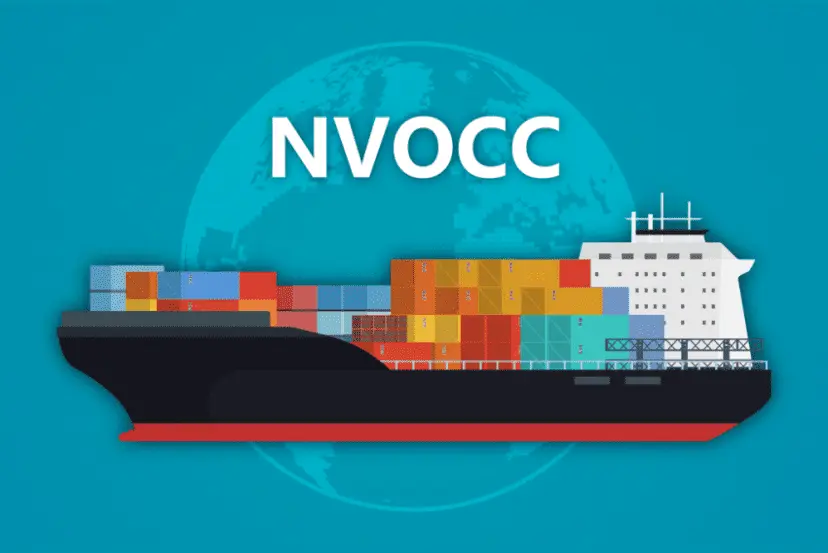
An NVOCC (Non-Vessel Operating Common Carrier) is a company that offers ocean freight services without operating its own vessels. Instead, an NVOCC leases space from actual vessel operators and issues its own House Bill of Lading (HBL) to shippers, thereby assuming the responsibility of a carrier. Here’s a detailed look at the primary functions and responsibilities of an NVOCC:
Functions and Responsibilities
- Issuing House Bills of Lading (HBL):
An NVOCC issues its own bills of lading to shippers, which serve as a contract of carriage. The HBL is a critical document as it encapsulates the terms and conditions under which the cargo is transported. - Leasing Vessel Space:
Instead of owning vessels, NVOCCs lease container space from actual vessel operators. This arrangement allows NVOCCs to consolidate multiple shipments from different shippers into one container, optimizing space and cost. - Managing Cargo Movement:
NVOCCs take on the responsibility of coordinating the entire cargo movement process. This includes everything from arranging the pickup of goods from the shipper’s warehouse to ensuring safe and timely delivery at the destination port. - Providing Additional Services:
Many NVOCCs offer a range of supplementary services to enhance their value proposition. These may include warehousing, insurance services, customs clearance, and even door-to-door delivery solutions.
Advantages of Using an NVOCC
- Flexibility in Shipping Options:
NVOCCs typically have the flexibility to offer multiple shipping options, thanks to their bulk leasing arrangements. This can be particularly advantageous for shippers who require customized solutions. - Competitive Rates:
Due to the bulk leasing of container space, NVOCCs can often negotiate more competitive rates with vessel operators, passing on the cost savings to their clients. - Comprehensive Control Over Cargo Movement:
NVOCCs manage the entire shipping process, providing shippers with a single point of contact and enhanced control over the logistics chain.
Disadvantages of Using an NVOCC
- Limited Liability:
Compared to actual vessel operators, NVOCCs may have more limited liability in the event of cargo loss or damage. It is crucial for shippers to understand the terms and conditions outlined in the HBL. - Potential for Higher Costs:
While NVOCCs can offer competitive rates, there may be instances where costs are higher due to additional services or lack of effective negotiation. Shippers need to conduct a thorough cost-benefit analysis before engaging an NVOCC.
By understanding the role and functions of an NVOCC, shippers can better assess whether this type of service provider aligns with their specific shipping needs. For those looking for a highly professional, cost-effective, and high-quality logistics partner, Dantful International Logistics offers comprehensive NVOCC services tailored to meet global trade requirements.
What is a Freight Forwarder?
A Freight Forwarder is a company that arranges the transportation of goods on behalf of shippers. Unlike NVOCCs, freight forwarders do not operate as carriers but act as intermediaries between the shipper and various transportation services, including ocean, air, and land freight. They are essentially logistics experts who manage and coordinate the entire shipping process, ensuring that goods reach their destination efficiently and cost-effectively. Here are the primary functions and responsibilities of a freight forwarder:
Functions and Responsibilities
- Arranging Transportation:
Freight forwarders coordinate with multiple carriers to arrange the transportation of goods from the point of origin to the final destination. This includes selecting the most appropriate mode of transport (air, sea, or land), booking cargo space, and negotiating freight rates. - Customs Brokerage:
One of the critical roles of freight forwarders is handling customs documentation and clearance processes. They ensure that all necessary paperwork is in order and that the shipment complies with international trade regulations. This helps in avoiding delays and additional costs associated with customs clearance. - Consolidation Services:
Freight forwarders often consolidate smaller shipments from multiple shippers into a single larger shipment. This process, known as consolidation, can result in significant cost savings for shippers by optimizing the use of cargo space. - Providing Additional Services:
Apart from transportation and customs brokerage, freight forwarders offer a range of value-added services such as warehousing, insurance, and supply chain consulting. These services provide shippers with a comprehensive solution to their logistics needs, thereby reducing the complexity of managing multiple service providers.
Advantages of Using a Freight Forwarder
- Expertise in Handling Complex Logistics:
Freight forwarders bring a wealth of knowledge and experience in managing the intricacies of international shipping. Their expertise ensures that shipments are handled efficiently, reducing the risk of errors and delays. - Access to a Wide Network of Carriers and Routes:
Freight forwarders typically have established relationships with a broad network of carriers and can offer shippers multiple routing options. This flexibility can be advantageous in finding the most cost-effective and timely shipping solutions. - Comprehensive Service Offerings:
Freight forwarders provide end-to-end logistics solutions, including documentation, customs clearance, and value-added services like warehousing and insurance. This holistic approach simplifies the shipping process and enhances overall supply chain efficiency.
Disadvantages of Using a Freight Forwarder
- Potential for Higher Costs Due to Intermediary Fees:
As intermediaries, freight forwarders charge fees for their services, which can add to the overall cost of shipping. Shippers need to evaluate these additional costs against the benefits of using a freight forwarder. - Dependence on Third-Party Carriers for Timely Delivery:
Freight forwarders rely on third-party carriers to transport goods. While they coordinate and oversee the process, the actual transportation is out of their control. This dependence can sometimes lead to delays and uncertainties.
By leveraging the services of a freight forwarder, shippers can navigate the complexities of international shipping with greater ease and efficiency. For those seeking a reliable and comprehensive logistics partner, Dantful International Logistics offers professional freight forwarding services tailored to meet diverse shipping requirements.
Dantful International Logistics Services:
- Dantful Ocean Freight Services
- Air Freight From China
- Amazon FBA Freight Forwarding
- WAREHOUSE Services
- One-Stop Customs Clearance Solution
- Cargo Insurance Services in China
- DDP Shipping Services By Dantful Logistics
- Out of Gauge Cargo Transportation Shipping Services
Key Differences Between NVOCC and Freight Forwarder
While both NVOCCs and Freight Forwarders play essential roles in the logistics chain, they operate differently and offer distinct advantages. Understanding these differences can help shippers make informed decisions based on their specific needs. Here are the key differences between NVOCCs and Freight Forwarders:
| Criteria | NVOCC | Freight Forwarder |
|---|---|---|
| Operational Structure | Leases container space from vessel operators and issues its own House Bill of Lading (HBL). | Acts as an intermediary, arranging transportation with multiple carriers and does not issue its own Bill of Lading. |
| Legal Status and Liabilities | Functions as a carrier, assuming carrier responsibilities and liabilities defined in the HBL. | Functions as an agent for shippers, coordinating logistics but with limited liability. |
| Service Offerings | Specializes in ocean freight services, including ancillary services like warehousing and insurance. | Provides a comprehensive range of services, including air, sea, land freight, customs brokerage, warehousing, and insurance. |
| Cost Implications | Often offers competitive rates due to bulk leasing of container space. Cost structure may include additional fees for services. | May have higher overall costs due to intermediary fees, but offers comprehensive service packages that can optimize overall logistics expenditure. |
Operational Structure
NVOCCs lease container space from vessel operators and issue their own House Bill of Lading (HBL), making them legally recognized carriers. This allows them to offer ocean freight services directly to shippers.
In contrast, Freight Forwarders act as intermediaries, coordinating with various carriers to arrange transportation. They do not issue their own bills of lading but work with carriers who do. This intermediary role allows freight forwarders to offer a broader range of services beyond ocean freight, including air and land transport.
Legal Status and Liabilities
As carriers, NVOCCs assume the legal responsibilities and liabilities outlined in the House Bill of Lading. This includes responsibilities for the safe transport of goods and liability for any loss or damage during transit.
Freight Forwarders, on the other hand, act as agents for shippers. They coordinate logistics but do not assume the same level of liability as carriers. Their role is to ensure that all aspects of the shipping process are managed efficiently, but the actual transportation is handled by third-party carriers.
Service Offerings
NVOCCs specialize in ocean freight services and often provide additional services such as warehousing, insurance, and customs clearance. Their focus is primarily on maritime transport, leveraging bulk leasing to offer competitive rates.
Freight Forwarders provide a more comprehensive range of logistics services, including not only ocean freight but also air and land transport, customs brokerage, and supply chain consulting. Their ability to offer multiple modes of transport makes them versatile logistics partners capable of handling complex shipping needs.
Cost Implications
NVOCCs can often offer competitive rates due to their bulk leasing arrangements with vessel operators. However, shippers need to be aware of additional fees that may apply for ancillary services.
Freight Forwarders may have higher overall costs due to their intermediary role and the comprehensive nature of their service offerings. However, their ability to optimize the entire logistics process can result in overall cost savings and improved supply chain efficiency.
By understanding these key differences, shippers can better evaluate which type of service provider aligns with their specific logistics requirements. Whether you choose an NVOCC for its competitive ocean freight rates or a Freight Forwarder for its comprehensive service offerings, selecting the right partner is crucial for ensuring smooth and efficient international shipping. Dantful International Logistics stands out as a reliable option, offering both NVOCC and Freight Forwarding services to meet diverse shipping needs.
How to Choose Between NVOCC and Freight Forwarder
Deciding between an NVOCC and a Freight Forwarder is a critical decision that can significantly impact your shipping operations, costs, and overall logistics efficiency. Both service providers offer distinct advantages, and the choice largely depends on the specific needs and priorities of your business. Here are some key factors to consider when making this decision:
Factors to Consider
- Shipment Size and Frequency:
- NVOCC: If your business involves large, frequent shipments, an NVOCC might be more advantageous due to their ability to lease container space in bulk, potentially offering competitive rates for high-volume shipping.
- Freight Forwarder: For smaller, less frequent shipments, a freight forwarder can consolidate your cargo with others, optimizing costs and providing flexible shipping solutions.
- Transportation Needs:
- NVOCC: Specializes in ocean freight services and may offer more competitive rates for maritime transport. Ideal if your primary shipping route is via sea.
- Freight Forwarder: Offers a comprehensive range of logistics solutions, including air, sea, and land transport. Suitable if your shipments require multimodal transportation or if you need a one-stop solution for all logistics needs.
- Destination and Routing:
- NVOCC: May offer more specialized services on specific routes due to established relationships with vessel operators.
- Freight Forwarder: Often has a wider network of carriers and can provide more routing options, which is beneficial for complex or less-traveled destinations.
- Service Requirements:
- NVOCC: If you primarily need ocean freight services with ancillary offerings like warehousing and insurance, an NVOCC can provide a focused and specialized service.
- Freight Forwarder: If you need a broader range of services including customs clearance, documentation, supply chain consulting, and door-to-door delivery, a freight forwarder is likely the better choice.
- Cost Considerations:
- NVOCC: May offer lower rates for ocean freight due to bulk space leasing. However, be mindful of additional fees for services.
- Freight Forwarder: While intermediary fees may increase costs, the comprehensive service package can lead to overall savings by optimizing the logistics process.
- Liability and Risk Management:
- NVOCC: Acts as a carrier and assumes carrier liabilities as outlined in the House Bill of Lading.
- Freight Forwarder: Functions as an agent with limited liability but provides expertise in managing and mitigating logistics risks, such as customs delays or documentation errors.
By thoroughly evaluating these factors, businesses can make an informed decision that aligns with their logistics needs and operational goals. The right choice will ensure seamless, cost-effective, and efficient shipping, ultimately contributing to the success of your international trade activities.
References
To further understand the nuances between NVOCCs and Freight Forwarders and to aid in making an informed decision, consider the following references and sources:
- International Federation of Freight Forwarders Associations (FIATA) – FIATA
- Provides comprehensive resources and guidelines for freight forwarders and logistics service providers.
- Federal Maritime Commission (FMC) – FMC
- Offers regulatory information and insights on NVOCCs operating in the United States.
- World Shipping Council (WSC) – WSC
- A valuable resource for understanding global shipping practices and the roles of different logistics providers.
- Dantful International Logistics – Dantful
- A highly professional, cost-effective, and high-quality international logistics service provider offering both NVOCC and freight forwarding services.

Young Chiu is a seasoned logistics expert with over 15 years of experience in international freight forwarding and supply chain management. As CEO of Dantful International Logistics, Young is dedicated to providing valuable insights and practical advice to businesses navigating the complexities of global shipping.









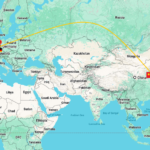
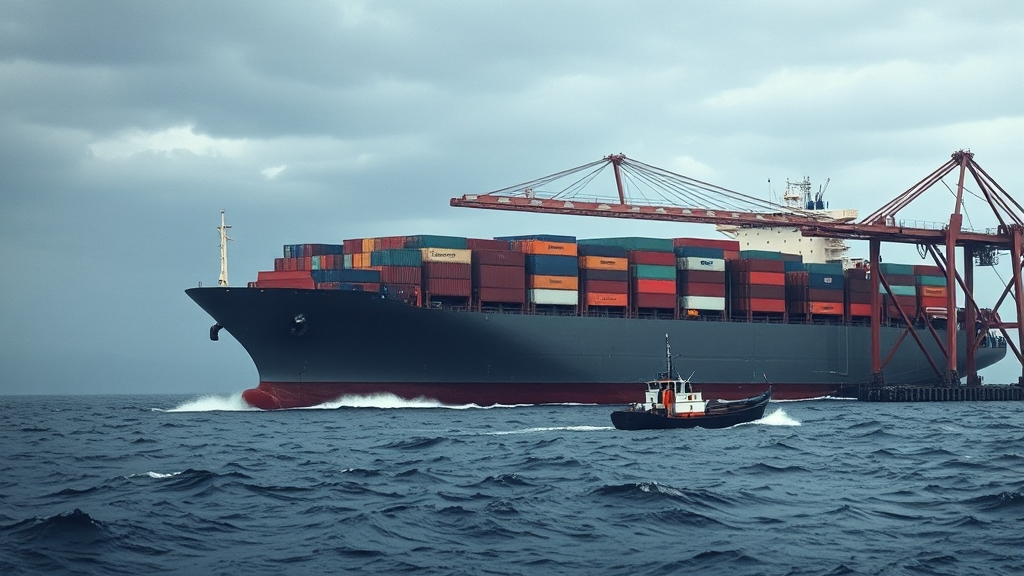
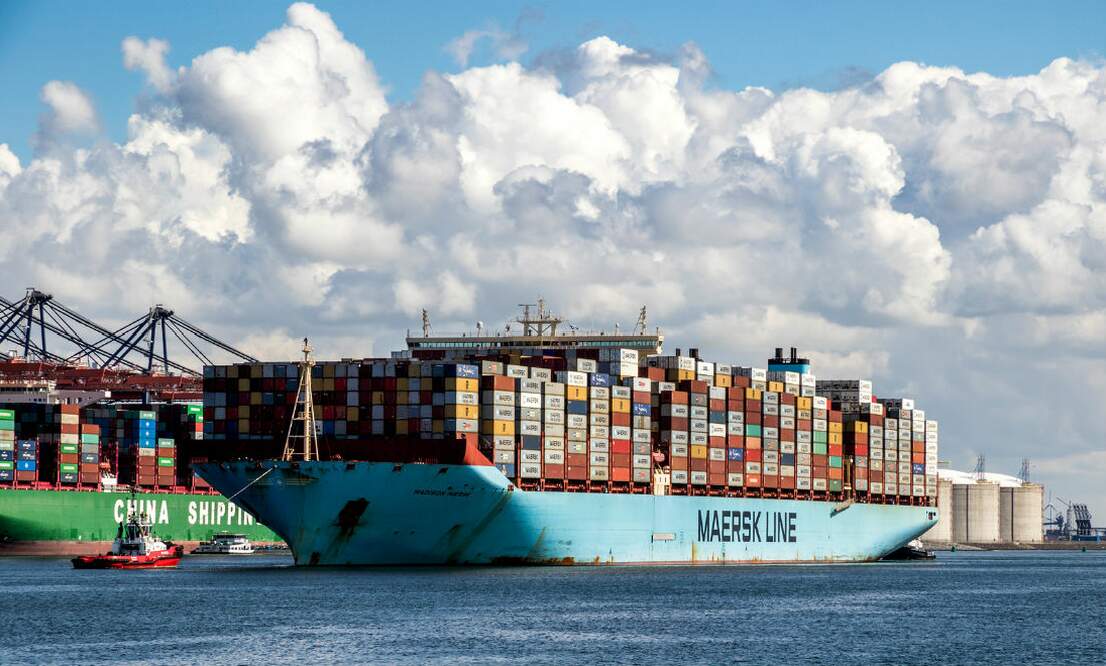
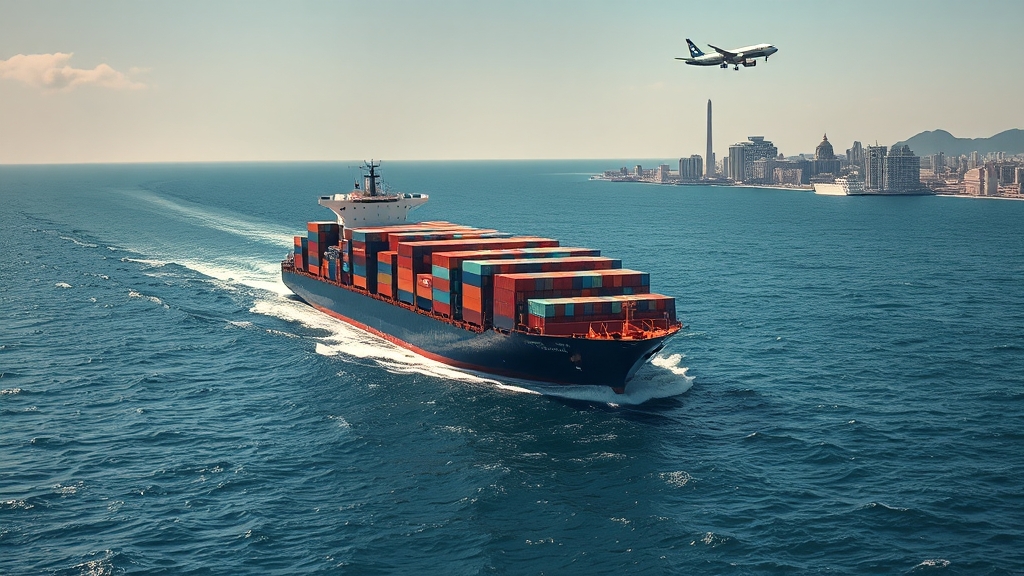
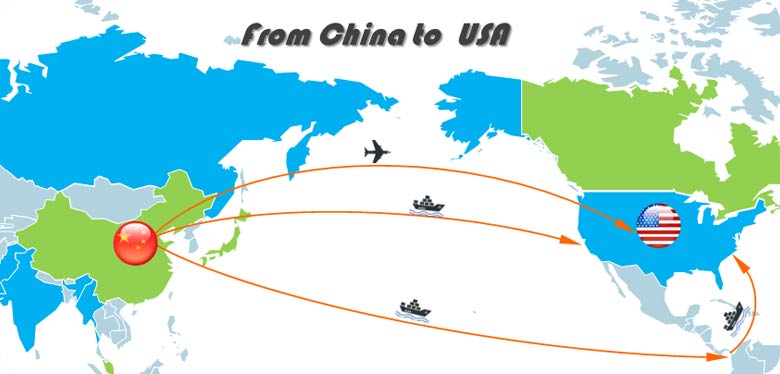
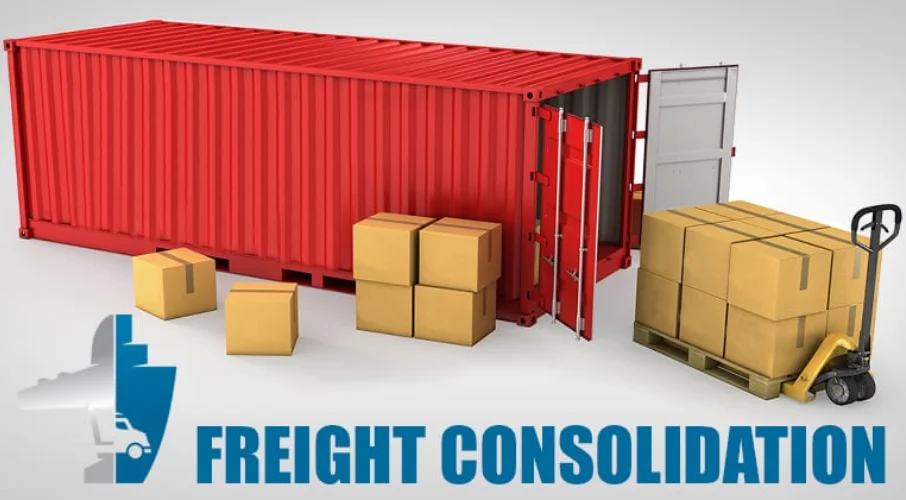





 Afrikaans
Afrikaans Shqip
Shqip አማርኛ
አማርኛ العربية
العربية Հայերեն
Հայերեն Azərbaycan dili
Azərbaycan dili Euskara
Euskara Беларуская мова
Беларуская мова বাংলা
বাংলা Bosanski
Bosanski Български
Български Català
Català Cebuano
Cebuano Chichewa
Chichewa 简体中文
简体中文 繁體中文
繁體中文 Corsu
Corsu Hrvatski
Hrvatski Čeština
Čeština Dansk
Dansk Nederlands
Nederlands English
English Esperanto
Esperanto Eesti
Eesti Filipino
Filipino Suomi
Suomi Français
Français Galego
Galego ქართული
ქართული Deutsch
Deutsch Ελληνικά
Ελληνικά Kreyol ayisyen
Kreyol ayisyen Harshen Hausa
Harshen Hausa Ōlelo Hawaiʻi
Ōlelo Hawaiʻi עִבְרִית
עִבְרִית हिन्दी
हिन्दी Hmong
Hmong Magyar
Magyar Íslenska
Íslenska Igbo
Igbo Bahasa Indonesia
Bahasa Indonesia Gaeilge
Gaeilge Italiano
Italiano 日本語
日本語 Basa Jawa
Basa Jawa ಕನ್ನಡ
ಕನ್ನಡ Қазақ тілі
Қазақ тілі ភាសាខ្មែរ
ភាសាខ្មែរ 한국어
한국어 كوردی
كوردی Кыргызча
Кыргызча ພາສາລາວ
ພາສາລາວ Latin
Latin Latviešu valoda
Latviešu valoda Lietuvių kalba
Lietuvių kalba Lëtzebuergesch
Lëtzebuergesch Македонски јазик
Македонски јазик Malagasy
Malagasy Bahasa Melayu
Bahasa Melayu മലയാളം
മലയാളം Maltese
Maltese Te Reo Māori
Te Reo Māori मराठी
मराठी Монгол
Монгол ဗမာစာ
ဗမာစာ नेपाली
नेपाली Norsk bokmål
Norsk bokmål پښتو
پښتو فارسی
فارسی Polski
Polski Português
Português ਪੰਜਾਬੀ
ਪੰਜਾਬੀ Română
Română Русский
Русский Samoan
Samoan Gàidhlig
Gàidhlig Српски језик
Српски језик Sesotho
Sesotho Shona
Shona سنڌي
سنڌي සිංහල
සිංහල Slovenčina
Slovenčina Slovenščina
Slovenščina Afsoomaali
Afsoomaali Español
Español Basa Sunda
Basa Sunda Kiswahili
Kiswahili Svenska
Svenska Тоҷикӣ
Тоҷикӣ தமிழ்
தமிழ் తెలుగు
తెలుగు ไทย
ไทย Türkçe
Türkçe Українська
Українська اردو
اردو O‘zbekcha
O‘zbekcha Tiếng Việt
Tiếng Việt Cymraeg
Cymraeg יידיש
יידיש Yorùbá
Yorùbá Zulu
Zulu